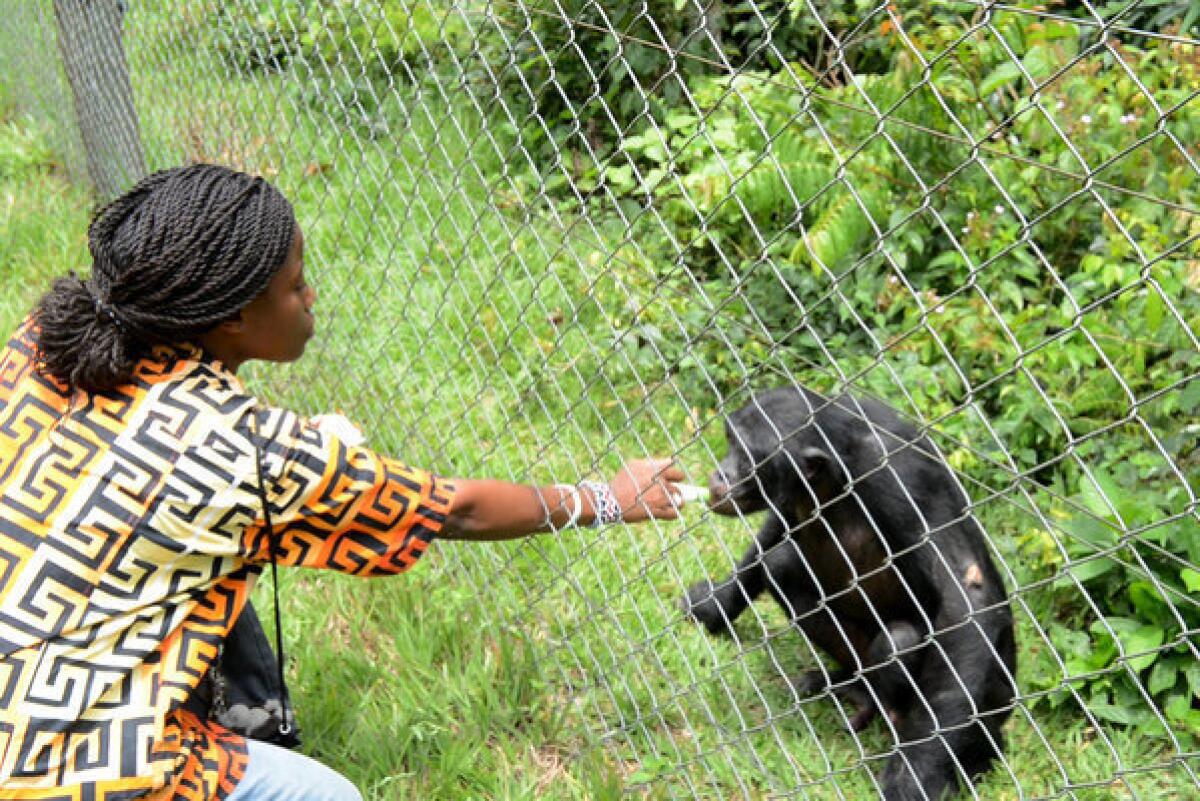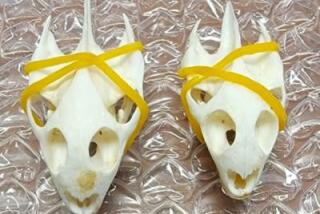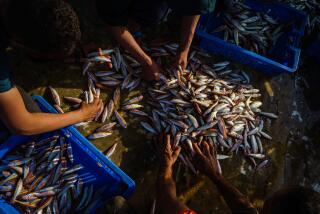Illegal great ape trade is more organized, U.N. finds

- Share via
A new United Nations report estimates that roughly 3,000 great apes are taken from the wild every year as part of an illegal international trade that is growing increasingly sophisticated.
The report, “Stolen Apes,” calls for greater law enforcement and more investigations into the organized trafficking of chimpanzees, gorillas, bonobos and orangutans.
Capture in the wild is often a byproduct of land clearance or bushmeat hunting. But the report found evidence that illicit trade had shifted “to a more sophisticated business driven by demand from international markets.”
The authors cited orders from zoos and private individuals in Asia that led to the export under falsified permits of more than 130 chimpanzees and 10 gorillas from Guinea, “an enterprise that requires a coordinated trading network through Central and West Africa.”
Law enforcement is virtually nonexistent. Between 2005 and 2011, only 27 arrests were made in Africa and Asia in connection with the great ape trade. A quarter of those were never prosecuted.
During that same period, the illegal capture of at least 1,808 great apes was documented. Extrapolating from that number – considered only a fraction of the actual trade – the report estimates that as many as 22,218 of the animals were lost from the wild during those years.
Great ape habitat is also being destroyed at a projected rate of 2% to 5% a year. “By 2030, less than 10% of their current range will remain” unless that loss is stopped, the report states.
The document, produced by the United Nations Environment Program, is available at https://www.un-grasp.org/news/121-download.







